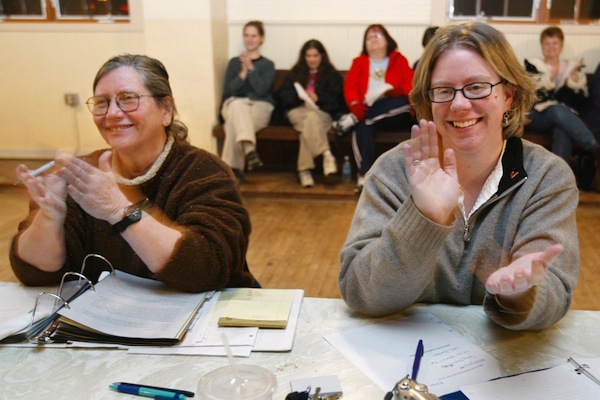When I was first told that I would have to give up one of my Academic Labs going to an assembly and listening to a speaker, I was not at all pleased.
However, after I arrived at the assembly to find out that the presenter was Tina Meier, whose daughter, Megan Meier, committed suicide on Oct. 17, 2006, I was ashamed with myself. As Tina Meier began her presentation and spoke compellingly about the dangers of bullying, particularly cyber-bullying, I was impacted by her true desire to change people’s views of bullying.
Unfortunately, the sad truth is that Tina Meier’s speech did little if anything to change the behaviors of the Ladue student body. Tina Meier spoke on two separate days, Jan. 25 and Jan. 31. On both occasions, the attitudes of those who had attended the assembly were much the same as mine. Many expressed the belief that Tina Meier was a good speaker and that her daughter’s death was heartbreaking, but that the assembly was not a solution to the bullying problem at Ladue High School. This is because the bullies in the audience were not changed by her story.
A recent Panorama survey of 150 students revealed that 61% of Ladue students do not believe the school’s disciplinary system is effective at changing behavior. When asked about how to improve the system, 50% suggested harsher punishments or greater enforcement. Despite student feedback in favor of enforcement, the school continues to combat the bullying problem through surveys or assemblies, neither of which were mentioned by those who answered the survey.
In society, punishments for breaking the law act as deterrents for ordinary citizens. Schools should utilize a similar structure, whether the person is a star athlete or an average student. Of course, many argue that it is very difficult to catch bullies, particularly those who use the Internet. If that statement is true, that is even more reason to make an example of those who are caught. If they are never punished or if their punishment is not as serious as it should be, there is no incentive for that bully or other bullies to stop their behavior. Even worse, the more bullies there are who escape punishment, the more students at Ladue will believe that our school does not have a bullying problem at all.
Early in the school year when the “Senior List” came to the attention of the press and the school, I was shocked to hear that many students, both male and female, did not see the list as an act of bullying. They said that the girls who appeared on the list deserved it, that the list was accurate, and that it really wasn’t a big deal. In the January edition of Panorama, Catie Ryan was quoted as saying “the root of the problem [can be] solved through the positive peer pressure of the observing students.” I would love to believe that this idea is possible, but the shocking comments about the “Senior List” demonstrate that many students at Ladue High School have lost their sensitivity to bullying and therefore do not care enough to speak against it.
So did Tina Meier’s presentation make a difference? Yes and no. It didn’t stop the bullies nor did it encourage them to act different. They will always believe that whatever they are doing is not significant until it is too late to save the victim. Still, Meier’s presentation was not a waste.
“I think it makes everything we’ve learned about bullying more real and gives students a very true story to remember when they think about bullying now,” junior Elizabeth Pinto said. “We’ve all been lectured, but seeing how it can impact a family and talking to someone who lost a loved one puts what we’ve learned about our acts into context.”
Some students will simply let the impact of Tina Meier’s words flow off them. However, I do hope that some students at least do consider her message, that no one ever knows a person’s life situation. I hope that enough students are impacted so they will be part of “positive peer pressure” rather than an onlooker. Even if our efforts can change the behavior of a single person, then we should consider it a success. #







